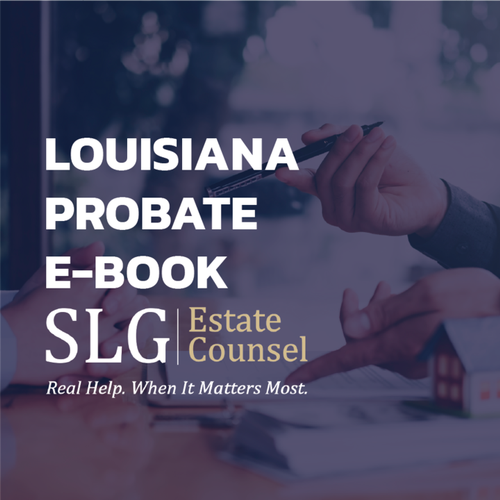After a loved one dies, you want to do everything possible to honor their wishes and take care of all their outstanding business. Often, this means paying debts and transferring ownership of property through the succession process. 
Many different issues may come up during succession, including how to value estate property fairly. Valuing estate property is more than just an accounting exercise. The value of the estate property has significant impact on the succession, creditors, and heirs. As an estate executor or administrator, you have a responsibility to make sure that estate property is valued fairly, and as an heir, you have the right to an accurate accounting.
Why Succession Property Valuation Matters
It’s important to understand why valuation is important. The value of a succession estate may impact more than just the value of your inheritance. The value of the estate's property value may also influence:
- Type of succession. Estates with a gross value of $125,000 or less may qualify for small successions. A small succession may be administered through affidavit or in court. A small succession administered by affidavit is typically faster and less expensive than a court administration. However, even if your small succession goes through a court administration, the process is typically faster and less costly than other types of Louisiana successions.
- Payment to creditors. Many people die owing debts that need to be paid from their estates. An accurate accounting of estate property is necessary to pay creditors fairly from estate property.
- Public benefits of heirs. The value of your inheritance may impact your eligibility for specific public benefit programs such as Medicaid.
- Payment to the estate administrator. Unless otherwise specified in a will, the estate executor or administrator may receive a fee equal to 2 ½ percent of the estate's gross value.
Additionally, heirs benefit from understanding the value of the property they inherit for tax, insurance, and personal reasons.
For all of these reasons, you want to make sure that the succession property is fairly and accurately valued before the succession is settled.
How to Value Estate Property in Louisiana
Some types of property are easier to value than others. For example, a bank account is valued by its balance, and stock is valued by its trading value on a public stock exchange. However, other types of property may be more difficult to value. For example, an accurate value of a home, vehicle, or piece of jewelry may be more challenging.
Estate administrators must use good faith to get an accurate fair market value for any of the estate's real estate or personal property. Often, an accurate fair market value requires the assistance of an expert such as a real estate appraiser, reputable car seller, or a jewelry appraiser.
If any of the property is going to be sold, the estate administrator may only do so without court permission if the succession proceeds with an independent administration. Otherwise, the administrator must go through the court, and notice must be given to heirs prior to the sale of any real or personal property.
Valuation Is Essential for Estate Administrators and Heirs
Both administrators and heirs have a lot at stake. If administrators fail to use reputable sources and accepted practices to establish fair market value, they may violate the duty of care they owe the estate, and heirs may take legal action against them. For heirs, the value of their inheritance depends on an accurate valuation of the estate property.
Valuing estate property is just one potential challenge in administering a Louisiana succession. Accordingly, if you are an administrator or an heir, we encourage you to contact a Louisiana succession lawyer for help. Each year, our attorneys help hundreds of families throughout Louisiana resolve their succession issues. Call us or complete our contact form to learn more.
|
Related Links: |



